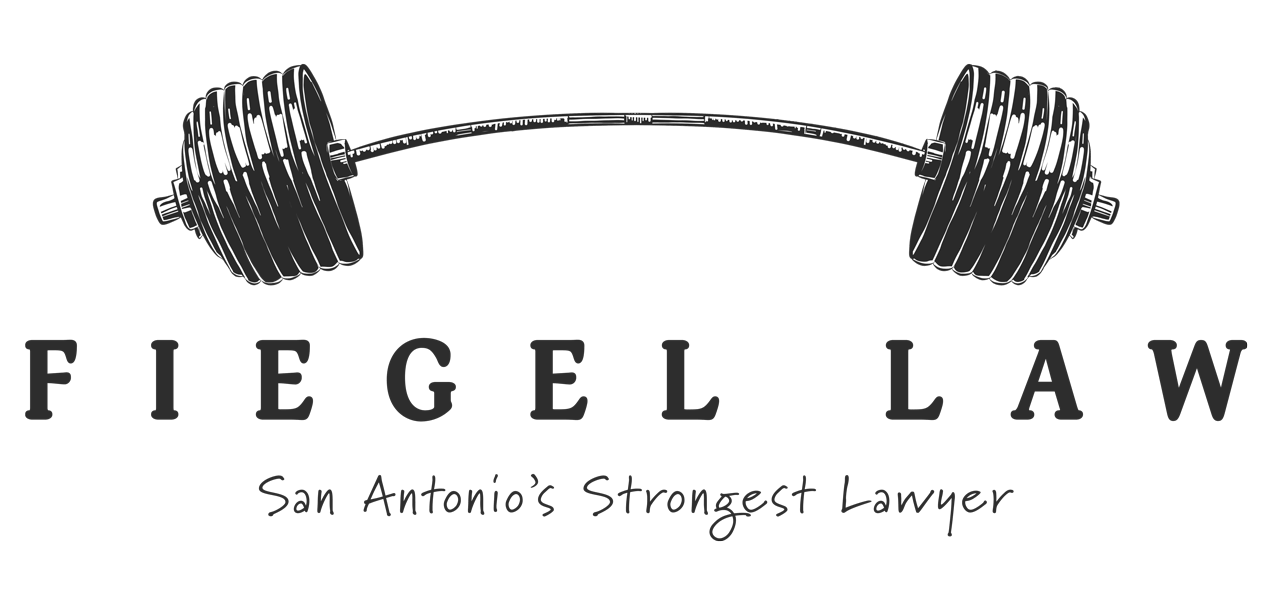Helotes Family Law Attorney
Why Choose Fiegel Law?
 Attorney Beauregard Fiegel has a long-standing reputation as an aggressive family law litigator who will fight fiercely for his clients. He also has a prominent reputation for standing up for father’s rights. While he also practices probate, civil, and criminal litigation, he has a passion for family law.
Attorney Beauregard Fiegel has a long-standing reputation as an aggressive family law litigator who will fight fiercely for his clients. He also has a prominent reputation for standing up for father’s rights. While he also practices probate, civil, and criminal litigation, he has a passion for family law.
At Fiegel Law, we know that divorce is messy. It involves not only the law but also complex emotions, family ties, and nearly every aspect of your life. Divorce changes many things, which can be scary and stressful. But, take heart; we are here for you. Our team ensures you know your rights and have the autonomy to exercise them whenever possible. No matter what your goals are for your divorce and post-divorce life, we can help.
Whether you are facing a military divorce, paternity issues, child custody issues, or problems with child support or alimony, we have the knowledge, skills, and compassion to get you through this difficult time. All you have to do is reach out for help.
Our office is conveniently located near the northwest corner of the intersection of Bandera Road and West Loop 1604 North, east of the Sandra Day O’Connor High School and across the street from the Methodist ER Helotes at:
12274 Bandera Road
STE 104 Helotes,
Texas 78023
If you believe divorce or another family law matter is in your future, and you are in the Helotes area, do not hesitate to contact our firm for necessary guidance and support.
Family Law in Texas
Matters of family law are often complex and emotionally charged. When it comes to these issues, it can be hard to consider the needs and wants of your family in relation to the law and others involved. Here are some of the family law matters we handle:
Divorce
Whether you and your spouse agree to settle on the issues of your divorce or not, legal representation is always important. You want to ensure that you are aware of and understand your rights. An experienced family law lawyer can support you and navigate this challenging but momentous event in your life.
Alimony
Also referred to as spousal support or maintenance, alimony may or may not apply in your divorce case. If one spouse stayed home with the kids while the other worked and furthered their career, it is likely to apply. You can speak to a knowledgeable family law lawyer to determine if you might have to pay or can receive alimony.
Parenting Time/Conservatorship
If you have children, whom they will live with and how often they will see the other parent are likely high on your list of concerns. We can work with your spouse and their attorney to negotiate an agreement for both physical and legal custody (known as conservatorship in Texas) that works well for you both. If your spouse violates that agreement after the judge signs off on it, we can pursue your best legal options.
Child Support
Supporting your children financially, whether they live with you full-time or not, is crucial. We help clients who pay child support and those who receive it. Additionally, we can help modify child support orders if you have a significant change in life circumstances, such as a job loss.
Asset Division
Couples can acquire many different assets during their marriage. In a divorce, they will need to be divided between them. We can explain how Texas divorce laws apply to asset division in your case. We advocate for your rights and can negotiate if you have specific requests about which assets you want to keep.
Prenuptial Agreements
Perhaps you have a prenuptial agreement that you need to have enforced. Alternatively, maybe you are preparing to walk down the aisle and need to draft one. We can draft or review these essential agreements.
The Texas Divorce Process
 Divorce in Texas is a process that takes time, and spouses must always follow the proper procedures. This is one reason why many who are going through a divorce will hire a Helotes family law attorney to represent them.
Divorce in Texas is a process that takes time, and spouses must always follow the proper procedures. This is one reason why many who are going through a divorce will hire a Helotes family law attorney to represent them.
After one spouse files the divorce petition and they share information about assets and financials, they can discuss a divorce settlement. They can do this directly, though it is never advisable without legal representation. The spouses can also use lawyers or mediators to help settle their cases. The couple will need to determine issues such as:
- Child custody
- Child support
- Alimony or spousal support
- The distribution of marital assets
- The distribution of marital debts
If they can agree on the issues that apply in their divorce, their lawyers will prepare the Agreed Decree of Divorce and submit it to the court. If they cannot reach all agreements, the court will schedule a trial date. Before the trial, the spouses must attempt mediation with a neutral third party who can help them work out the terms of their divorce so that both parties are satisfied.
In divorces with unsuccessful mediation, the case will continue to trial. Once the trial is over, the court’s rulings are binding to both parties going forward. Going to trial can be risky for either party, and it is usually best when the couple can come to agreements out of court. Going to trial is more expensive and will drag out the divorce process.
Types of Divorce Cases that Typically Go to Trial
You may be wondering if your own divorce will end up at trial. Divorce cases that go to trial typically happen when there is:
- A significant disagreement over child custody as some parents will fight for their parental rights
- A considerable disagreement about finances or the division of assets
- A spouse who takes an irrational position and refuses to negotiate
Be Ready to Negotiate
If you are like most people, it’s unlikely that you will get everything you desire in your divorce settlement. For couples who want an uncontested divorce, being prepared to negotiate goes a long way. Think about the most important aspects to you and what you might be willing to give up for them. Your divorce lawyer can do the negotiating for you, but you are the one who needs to decide what you are willing to give up and what you’re not. Your attorney can often help come up with creative solutions to bring to the negotiation table.
Grounds for Divorce in Texas
 When contemplating divorce, questions about the necessary reasons and acceptable grounds may arise. In accordance with the Texas Family Code, the state of Texas recognizes both no-fault and fault-based divorces. This means that in certain situations, providing a reason for seeking a divorce may be required. Similarly, if your spouse initiates the divorce proceedings, they may need to specify a reason.
When contemplating divorce, questions about the necessary reasons and acceptable grounds may arise. In accordance with the Texas Family Code, the state of Texas recognizes both no-fault and fault-based divorces. This means that in certain situations, providing a reason for seeking a divorce may be required. Similarly, if your spouse initiates the divorce proceedings, they may need to specify a reason.
At Fiegel Law, we can review the valid grounds for divorce and determine the most suitable approach for your situation, including the possibility of a no-fault divorce.
Distinguishing Fault and No-Fault Divorce
In a no-fault divorce, the filing spouse does not have to demonstrate the other party engaged in behavior necessitating the divorce. Typically, a no-fault divorce cites grounds of insupportability, which is similar to irreconcilable differences or an irreparable breakdown of the marriage in other states. The non-filing spouse is not permitted to contest the divorce petition.
Fault-based divorces are less common, with many states having phased them out, though Texas still recognizes them. In a fault divorce, the filing spouse must specify the grounds for their action. One advantage of a fault divorce is that the spouses aren’t required to live separately for a designated period before initiating divorce proceedings. Additionally, if the filing spouse can substantiate fault, they may receive morese of the marital assets.
Valid Grounds for Divorce in Texas
During consultations with your divorce attorney, they will likely ask about details of your marriage and reasons for seeking divorce. They may also inquire about your spouse’s behavior. These inquiries aid in determining whether a fault-based divorce is advisable and which of the potential following grounds for divorce aligns best with your circumstances:
- Cruelty
- Adultery
- Felony (one spouse is convicted and sentenced to at least one year of imprisonment)
- Abandonment by the spouse for a minimum of one year
- Three-year separation without cohabitation
- Confinement to a state or private mental health facility
When pursuing a fault-based divorce, you assert that your spouse’s actions and misconduct contributed to the dissolution of your marriage. If your spouse disputes these grounds, they have the option to contest the divorce. To substantiate your claims, you must be ready to provide testimony and evidence. Your attorney will guide you through assembling the necessary documentation to support your grounds for divorce.
Understanding Community Property Laws in Texas
Texas distinguishes itself as one of the select states in the U.S. that adheres to the community property system. The framework designates assets acquired during a marriage as joint property, equally owned by both spouses. This applies to earnings, real estate holdings, investments, and other possessions amassed throughout the marital union. These principles hold true even in high-net-worth divorces.
Defining Separate Property
However, not all assets fall under the jurisdiction of community property. Separate property defines assets solely owned by one spouse before the marriage or acquired through gift, inheritance, or personal injury settlement during the marital period. Typically, these assets are not subject to legal division in the event of a divorce.
Equitable Division vs. Equal Division
While Texas abides by community property laws, the allocation of marital assets may not always result in a strict 50-50 split. Texas law mandates a division that is “just and right,” taking into account various factors to determine what is equitable. This means the division may be uneven if specific circumstances warrant a different distribution.
Factors Considered in Asset Division
In the process of determining how marital assets should get apportioned, the court takes into consideration several critical factors, including the following:
- Age and health of each spouse: The court assesses the future financial requirements of each spouse, particularly if one party requires ongoing medical care or support.
- Education and earning capacity: Disparities in earning potential or educational opportunities may factor in when dividing assets.
- Child custody arrangements: The custody arrangement for any children can influence how assets get divided, as the custodial parent may require additional financial support.
- Fault in the marriage: In cases where one spouse bears responsibility for the divorce, the court may consider this when determining asset division.
- Contributions to the marriage: The court acknowledges both monetary and non-monetary contributions to the marriage. This encompasses contributions to the household, child-rearing responsibilities, and support provided for a spouse’s career or education.
Questions about Divorce or Family Law Issues? Contact Fiegel Law Today
Your next step should be to meet with a seasoned Helotes divorce attorney as soon as possible. We can prepare your petition for the dissolution of your marriage if you will be the filing spouse. If you aren’t the filing spouse, we can respond to the divorce petition and go over your rights moving forward.
Your attorney can also ensure you meet all the requirements to file for divorce in Texas. Whether or not you are the filing spouse, they will protect and stand up for your best interests. Another benefit of having legal counsel is knowing what to expect and having someone available to answer your questions as they arise.
To learn more about your legal rights and family law in Texas, contact Fiegel Law today at 210-699-7291 or online.
He stuck with me, for 10 months while a whirlwind of situations/petitions occurred. He never made me feel like I was asking too many questions, always made me feel like I my case was the only case, had great HONEST advice that allowed me to see situations in the context of family law AND we won absolutely everything I wanted and more (at a great price). All based off his ability to navigate the sometimes unfair family court system. I’ll never use another lawyer. Thanks Beau!”
Schedule a
Consultation


